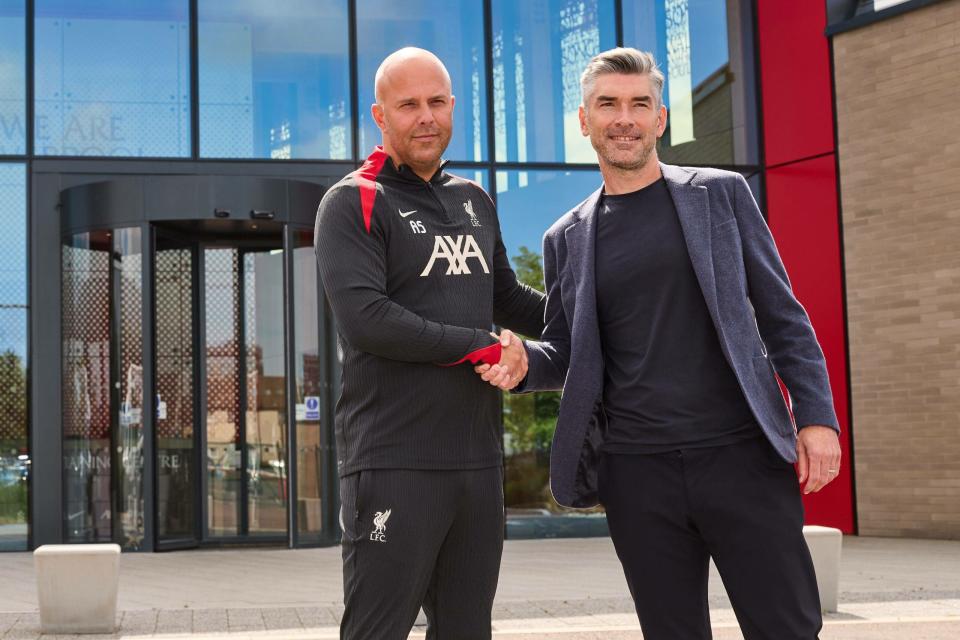“I Doubt it” – Journalist on Liverpool’s Reported Move to Sign £40m Premier League Star

Analysing Liverpool’s Transfer Strategy: The Case of Milos Kerkez and Julio Soler
In the complex world of football transfers, the whispers and rumours never cease, particularly around clubs with the stature and expectations of Liverpool FC. Recently, David Lynch, in a conversation with Dave Davis for Anfield Index, shed some light on Liverpool’s alleged interest in Milos Kerkez and Julio Soler, providing a perspective that demystifies some of the speculation surrounding these players.
Liverpool’s Transfer Priorities: Soler vs. Kerkez
According to Lynch, the rumours linking Julio Soler with Liverpool might not hold as much water as some might think. “Soler has been linked with Liverpool and I got no encouragement on that, so that could be agent talk,” Lynch revealed. This comment suggests that the links could be more about the player’s representatives trying to create buzz rather than genuine interest from the club. It’s a common tactic in football, using high-profile club names to elevate a player’s market value or negotiating position.
Conversely, the strategy surrounding Milos Kerkez, especially from Bournemouth’s perspective, appears more straightforward and sensible. Lynch notes, “For Bournemouth, it makes sense to bring in Soler before selling Kerkez in the summer.” This would allow Bournemouth to manage their squad transitions smoothly, ensuring that the potential departure of Kerkez does not leave them vulnerable.

Liverpool’s Left-Back Situation: No Immediate Concerns
Discussing Liverpool’s current squad depth, Lynch points out that the club is unlikely to prioritize a left-back in the January transfer window. “I don’t expect Liverpool to move for a left-back in January, especially with Kostas Tsimikas returning from injury,” he stated. This comment highlights the club’s trust in their existing resources. With both Tsimikas and Andrew Robertson available, Liverpool seems well-equipped in this area.
Lynch adds, “With both Tsimikas and Robertson, that should be enough to get us through to the end of the season. They’re not going to be perfect, but no football team is perfect.” His realism here is notable—it’s a clear nod to the idea that while neither player may completely resolve every issue, their combined contributions should sufficiently cover the team’s needs.
Potential Impact on Bournemouth’s Strategy
The implications for Bournemouth also deserve attention. Lynch’s insights suggest a strategic patience in their transfer dealings. “I don’t expect Bournemouth to bring Soler in to be a starter straight away, so I doubt Kerkez will be making a move.” This indicates a more measured approach, possibly integrating Soler gradually into the team, which could be beneficial in maintaining team balance and managing player expectations.

Conclusion: Liverpool’s Calculated Caution
The insights from Lynch, expertly communicated through his discussion with Davis, reflect a broader trend in Liverpool’s transfer strategy under the guidance of Arne Slot. The club’s approach seems to favour caution and pragmatism, relying on thorough scouting and strategic foresight rather than impulsive buys.
As the January window approaches, the focus for Liverpool remains clear: optimize the existing squad and integrate returning players, rather than seeking short-term fixes. For fans and pundits alike, understanding these dynamics is essential, shedding light on the club’s potential moves and reinforcing the complexities of football management at the highest levels.
In the world of football where the only constant is change, Liverpool’s approach to the January transfer window—emphasizing stability over splash—serves as a reminder of the strategic depth that underscores top-level football decisions. Through careful planning and a clear understanding of the squad’s capabilities and needs, Liverpool continues to navigate the challenging waters of Premier League football.

 Yahoo Sports
Yahoo Sports 
